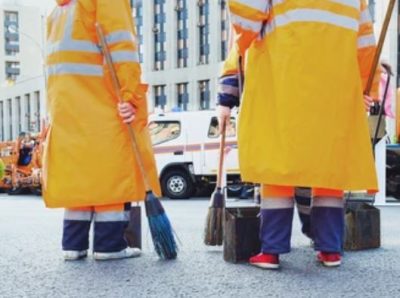Introduction
The horrible Indian practice of manual scavenging entails the coercion of people into cleaning untreated human waste from dry latrines, ditches, pits, and toilets. Guide scavenging is a persistent problem that may be tracked via several obstacles, despite attempts by lawmakers to reduce this cruel practice. Manual scavenging presents a number of difficulties. Disrespectful working conditions are the root of the first problem. Manual scavengers put their health at extreme hazard due to the fact to the deteriorating and threatening working occasions they bear, now and again without the necessary protective equipment. Second, prejudice and social stigma is probably gift. Manual scavengers face prejudice and discrimination from society, which keeps them at the bottom of the social ladder.
Safeguarding Workers, Uplifting Lives: The 2013 Act Combatting Manual Scavenging in India
The Prohibition of Employment as Manual Scavengers and Their Rehabilitation Act, 2013, is a huge law in India that addresses the problem of manual scavenging. It explicitly prohibits the engagement of humans inside the dangerous exercise of manual scavenging and the cleaning of sewers without good enough shielding machine. The law emphasizes the important use of protection equipment to make certain the well-being of sanitation humans. Furthermore, it makes a speciality of entire rehabilitation measures, consisting of the deliver of alternative employment possibilities and capability development programs, geared toward uplifting individuals from the degrading practice of guide scavenging and integrating them into dignified livelihoods. The act also mandates surveys for the identity of guide scavengers, forming the basis for focused rehabilitation efforts.
[Image Sources: Shutterstock]
Balram Singh V. Union Of India & Ors (2023 Scc Online Sc 1386)
he Supreme Court’s choice within the case of Balram Singh v. Union of India (2023) on October 20, 2023, modified into a landmark ruling addressing the problem of manual scavenging in India. Manual scavenging refers to the deplorable exercise wherein people are forced to smooth untreated human excreta from dry bathrooms, latrines, ditches, and pits. The petitioner, Balram Singh, sought a complete ban on manual scavenging, contending that notwithstanding the life of two legislations prohibiting it on account that 1993, the exercise endured with out the availability of protecting equipment. Moreover, Singh highlighted a legislative hole concerning the rehabilitation of workers engaged in guide scavenging.
In response, the Union authorities submitted a testimony detailing the measures taken to put in force current regulation. However, the affidavit discovered a extensive deficiency in mechanization for cleaning sewer lines or septic tanks. In light of those findings, the Supreme Court, in October 2023, issued directives aimed toward the whole eradication of manual scavenging.
The judgment emphasized the provisions of the Prohibition of Employment as Manual Scavengers and Their Rehabilitation Act, 2013, which explicitly prohibits any character from entering direct contact with human excreta without appropriate shielding gear and cleansing gadgets. Additionally, the courtroom addressed the difficulty of compensation for sewer deaths, increasing the amount from Rs.10 lakh to Rs.30 lakh.
This selection underscored the judiciary’s commitment to eradicating the inhumane exercise of manual scavenging and highlighted the inadequacies within the implementation of present law. The courtroom’s directives now not most effective sought to remove manual scavenging but also addressed the need for correct rehabilitation measures for affected workers, emphasizing the importance of mechanization in sanitation paintings.
Conclusion
While legal frameworks exist in India to address artificial emissions, ongoing challenges underscore the need for sustained efforts. The commitment of the Judiciary, as seen in cases like Balram Singh v . Union of India (2023), also gives hope for a future where manual labor is abolished and the dignity and welfare of sanitation workers are given priority. Continued public awareness, strict enforcement of laws and technological advances in sanitation are important factors in the journey towards a carbon-free manual air-conditioning India.
Author: Aanchal Gorani, in case of any queries please contact/write back to us via email chhavi@khuranaandkhurana.com or at Khurana & Khurana, Advocates and IP Attorney.




